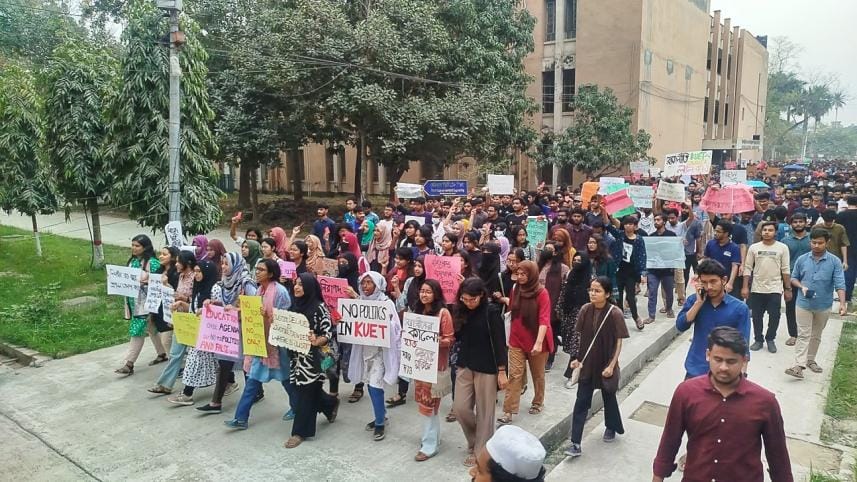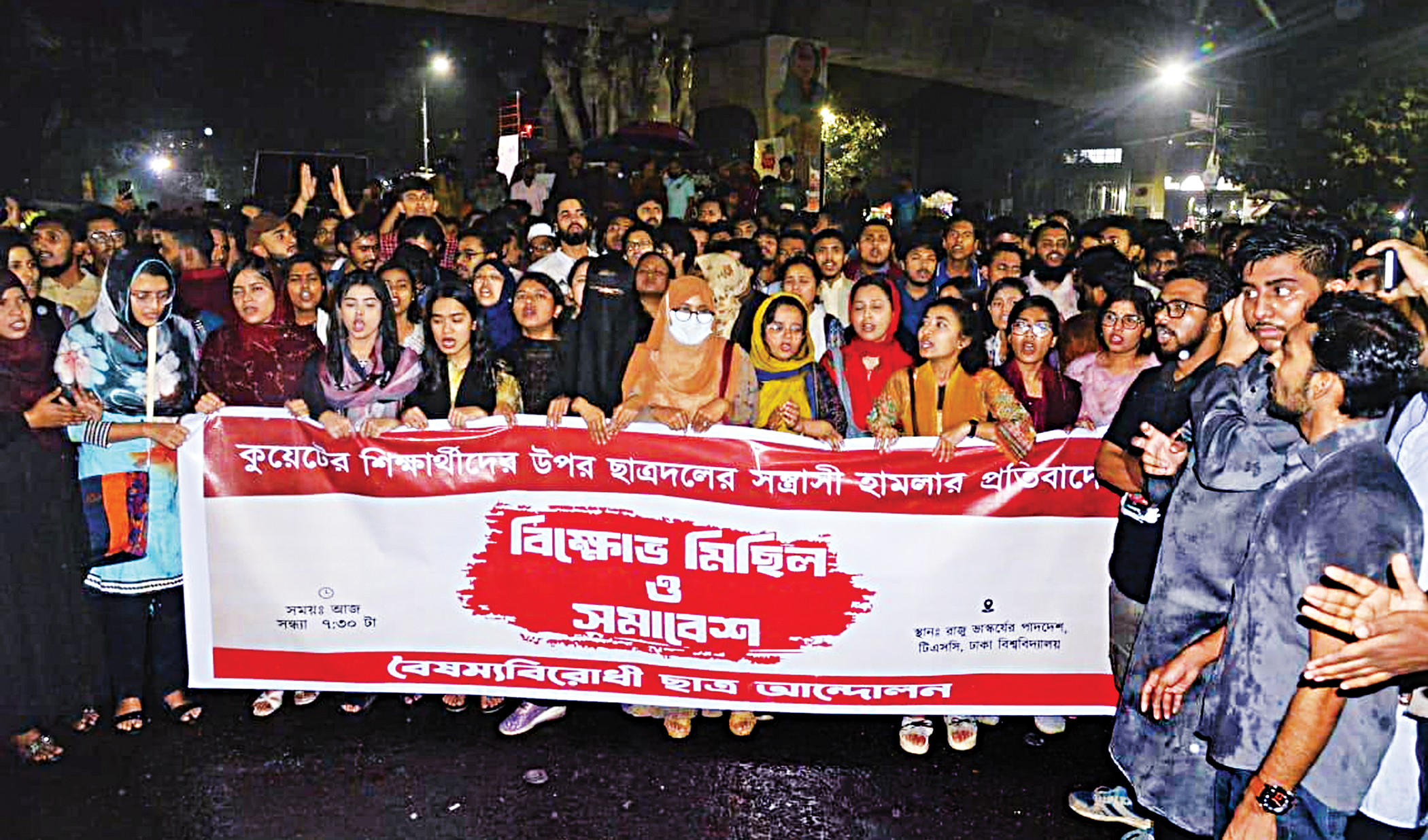What is next after the KUET clash?

On the path to restoring democracy in Bangladesh, student politics based on civil rights has a significant role to play. However, we cannot ignore or overlook its dark and violent side. I believe that the helmet-and hockey stick-wielding goons of Chhatra League were one of the main reasons behind the fall of Sheikh Hasina's regime. People had grown tired of their crimes and terrorist-like activities within educational institutions and beyond. Hasina has fallen and fled, but crime and violence in educational institutions continue.
There are three major political student wings in the educational institutions of Bangladesh: Chhatra Dal, Chhatra Shibir, and Chhatra League (which is now banned). These groups have dominated universities and other institutions for a long time, and none have been free from criminal activities. However, a few leftist student organisations have been striving to establish meritocracy and advocate for students' rights instead of engaging in tender manipulation or lobbying for recruitment. Unfortunately, they remain weak and fragmented, allowing criminal forces to maintain dominance.
I want to share one of my personal experiences. As a student of Dhaka University, I was a resident of Zia Hall, staying in room 407. In 2007, during the tenure of the caretaker government, student wings of the BNP and Jamaat-e-Islami Bangladesh clashed over seat allocations in the hall rooms, notoriously known as "gono rooms." One night in December 2007, tensions escalated into violence. Chhatra Shibir leaders were in the room of the Chhatra Dal hall president, engaged in a heated argument over seat distribution. What followed was a brutal fight. I can still vividly recall the harrowing cries of one of the student leaders—it was terrifying to hear on that cold, dark night. That night, one student leader even jumped from the seventh floor of our north-side building to the ground in an attempt to save his life. Can you imagine the extent of brutality students can inflict on each other when driven by personal and political interests?
With Awami League's ruthless and barbaric student wing now out of the picture, we had hoped for peace and stability in our educational institutions. However, to our deep disappointment, other student organisations are already stepping into Chhatra League's role—despite having fought shoulder-to-shoulder against the oppressive Sheikh Hasina regime just a few months ago.
The violent clashes at Khulna University of Engineering and Technology (KUET) between anti-discrimination student activists and members of Chhatra Dal have revived memories of the bloody brutality once synonymous with the Chhatra League era. This incident has raised serious concerns about the state of student politics across the country. Seeing injured students and men wielding large scythes and machetes on a university campus is utterly shocking and condemnable. No justification can excuse such violence. The tensions from the KUET clash quickly spread to other campuses, strongly influencing the future trajectory of student politics.
The KUET incident exposed the inherent brutality of student politics on our campuses. Following this, alleged Chhatra Shibir activists also brutally tortured MC College students over a Facebook comment. These Chhatra League-style crimes are an alarming sign. Such acts of violence must be stopped immediately, and law enforcement agencies must take swift action against the perpetrators.
We must remember that if this brutality is not curtailed now, it will spread to universities and colleges across the country, ultimately undermining the spirit of the July uprising. Most importantly, urgent steps must be taken to eliminate partisan politics from campuses through appropriate laws and policies.
I do not know how much longer students' blood will be used as a tool for political gain. But it is essential to try and put an immediate stop to it. We must ensure that our educational institutions are free from helmets, hockey sticks, scythes, machetes, and homemade sharp weapons once and for all.
Rahat Minhaz is assistant professor of mass communication and journalism at Jagannath University. He can be reached at minhaz_uddin_du@yahoo.com.
Views expressed in this article are the author's own.
Follow The Daily Star Opinion on Facebook for the latest opinions, commentaries and analyses by experts and professionals. To contribute your article or letter to The Daily Star Opinion, see our guidelines for submission.




 For all latest news, follow The Daily Star's Google News channel.
For all latest news, follow The Daily Star's Google News channel. 

Comments